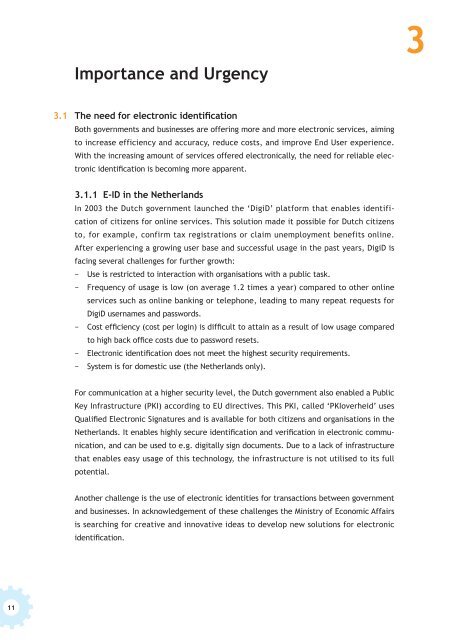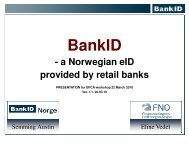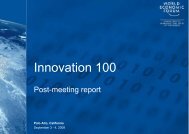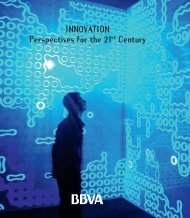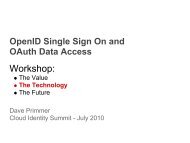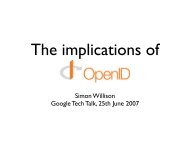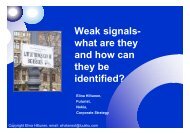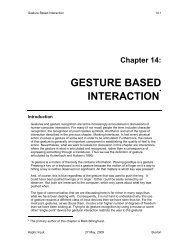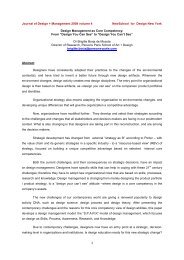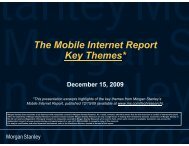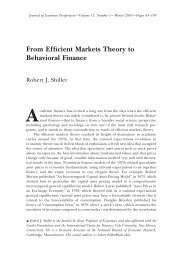A Network Approach to E-identification
A Network Approach to E-identification
A Network Approach to E-identification
- No tags were found...
Create successful ePaper yourself
Turn your PDF publications into a flip-book with our unique Google optimized e-Paper software.
3<br />
Importance and Urgency<br />
3.1 The need for electronic <strong>identification</strong><br />
Both governments and businesses are offering more and more electronic services, aiming<br />
<strong>to</strong> increase efficiency and accuracy, reduce costs, and improve End User experience.<br />
With the increasing amount of services offered electronically, the need for reliable electronic<br />
<strong>identification</strong> is becoming more apparent.<br />
3.1.1 E-ID in the Netherlands<br />
In 2003 the Dutch government launched the ‘DigiD’ platform that enables <strong>identification</strong><br />
of citizens for online services. This solution made it possible for Dutch citizens<br />
<strong>to</strong>, for example, confirm tax registrations or claim unemployment benefits online.<br />
After experiencing a growing user base and successful usage in the past years, DigiD is<br />
facing several challenges for further growth:<br />
− Use is restricted <strong>to</strong> interaction with organisations with a public task.<br />
− Frequency of usage is low (on average 1.2 times a year) compared <strong>to</strong> other online<br />
services such as online banking or telephone, leading <strong>to</strong> many repeat requests for<br />
DigiD usernames and passwords.<br />
− Cost efficiency (cost per login) is difficult <strong>to</strong> attain as a result of low usage compared<br />
<strong>to</strong> high back office costs due <strong>to</strong> password resets.<br />
− Electronic <strong>identification</strong> does not meet the highest security requirements.<br />
− System is for domestic use (the Netherlands only).<br />
For communication at a higher security level, the Dutch government also enabled a Public<br />
Key Infrastructure (PKI) according <strong>to</strong> EU directives. This PKI, called ‘PKIoverheid’ uses<br />
Qualified Electronic Signatures and is available for both citizens and organisations in the<br />
Netherlands. It enables highly secure <strong>identification</strong> and verification in electronic communication,<br />
and can be used <strong>to</strong> e.g. digitally sign documents. Due <strong>to</strong> a lack of infrastructure<br />
that enables easy usage of this technology, the infrastructure is not utilised <strong>to</strong> its full<br />
potential.<br />
Another challenge is the use of electronic identities for transactions between government<br />
and businesses. In acknowledgement of these challenges the Ministry of Economic Affairs<br />
is searching for creative and innovative ideas <strong>to</strong> develop new solutions for electronic<br />
<strong>identification</strong>.<br />
11


